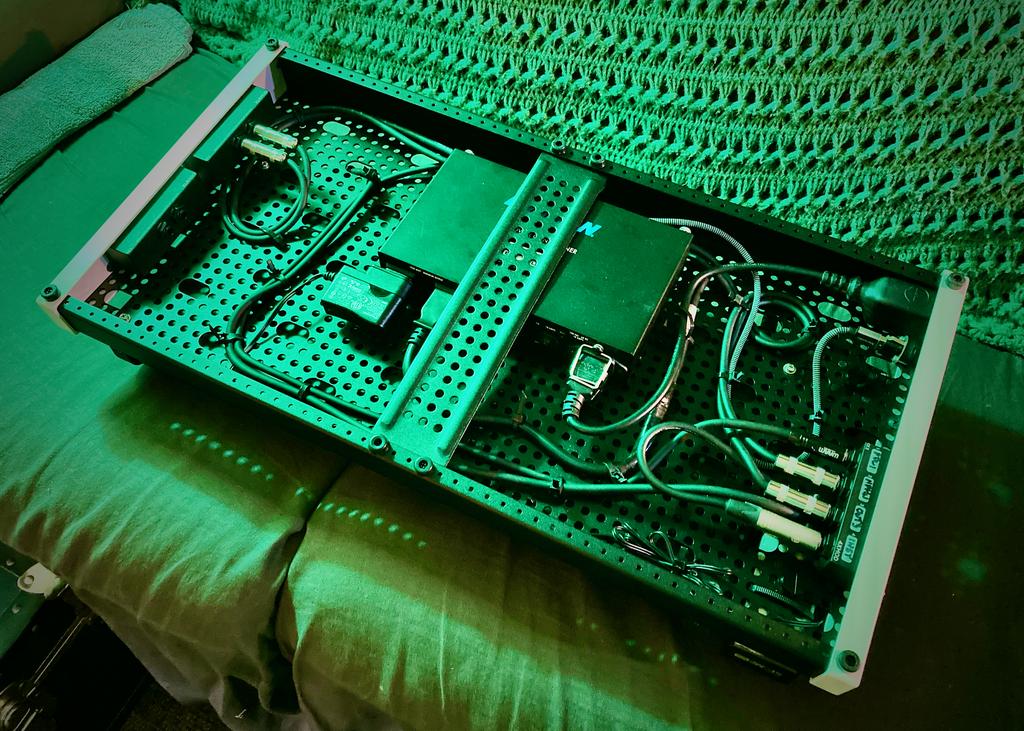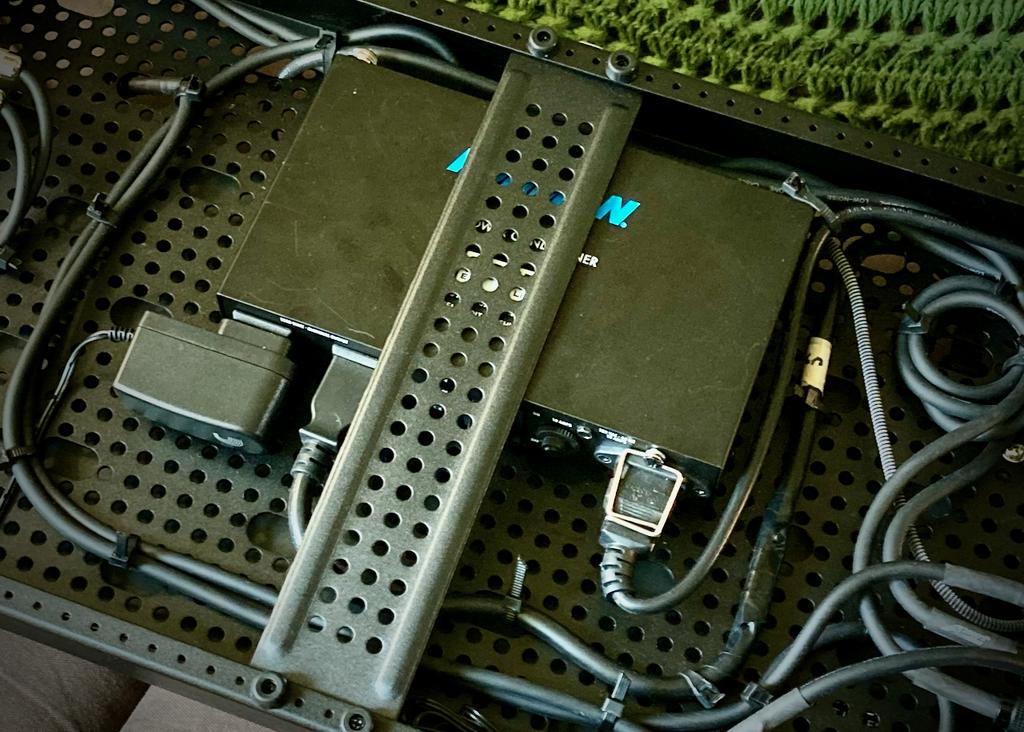Sorry for the green light in the first image. The Furman AC215A sits central to the board. A separate 3' 3-prong/AC cable was cut, scavenged and reattached so as to to allow the 3-prong to connect to the FM9 while shrink-wrap insulation and electrical tape sealed the cut ends.
The wire cage clamp is where the TA Micro Mains IEC connects to the Furman. The electrical taped 3-prong cable connects to the Furman, the passes through a TA large access port. Only wiring surgery was completed in order to connect to the FM9. The remaining Furman AC jack connects to the cherry-picked 9VDC rewired adapter. It's vital to know what length CTN barrel to invest in prior to doing any wiring. Took a little trial and error, but it tested OK with a multimeter continuity test before connecting.
You'll note that the Temple Audio board is a Duo 24 with just enough space towards the left margin for a Peterson Mini Strobo-Stomp tuner, and a tap switch that works either as momentary or latching.
The other end connects with the F>AC to the male AC cable on the near side of the Furman. The wiring surgery was needed to allow a wide enough port for the cable to pass through. The power switch to the Furman remains consistently on, and a Temple Audio Micro Mains Module turns power on/off flawlessly.
The remaining F>AC powers a 2-prong cherry-picked 9VDC adapter. Cherry-picked, in that the angle of the 2-prongs needed to be parallel to the board, and also that some surgery also needed be done to reduce the length of remaining wire extension. Peterson Mini Strobo Stomps are notorious for working exclusively with certain units, simply because the CTN barrels were either too short or too long for the Mini Strobo-Stomp. My only suggestion is to buy two separate adapters and brush up on your wiring soldering and continuity skills.
The reason I don't suggest buying Strobo-Stomp adapters is because their 2-prongs won't remain situated parallel regards the Furman. This glitch is a feature intrinsic solely to the Strobo-Stomp. One might find better results with alternate tuners. The reason I went to so much trouble with the Strobo-Stomp Mini was because Peterson is considered almost industry standard these days, and a lot of love and labor went into building my Duo 24. If you desire a quick and easy solution, this isn't it. Spend some time with your FM9 board build; I sincerely think with good planning and adequate time, you'll be happy with the results.



